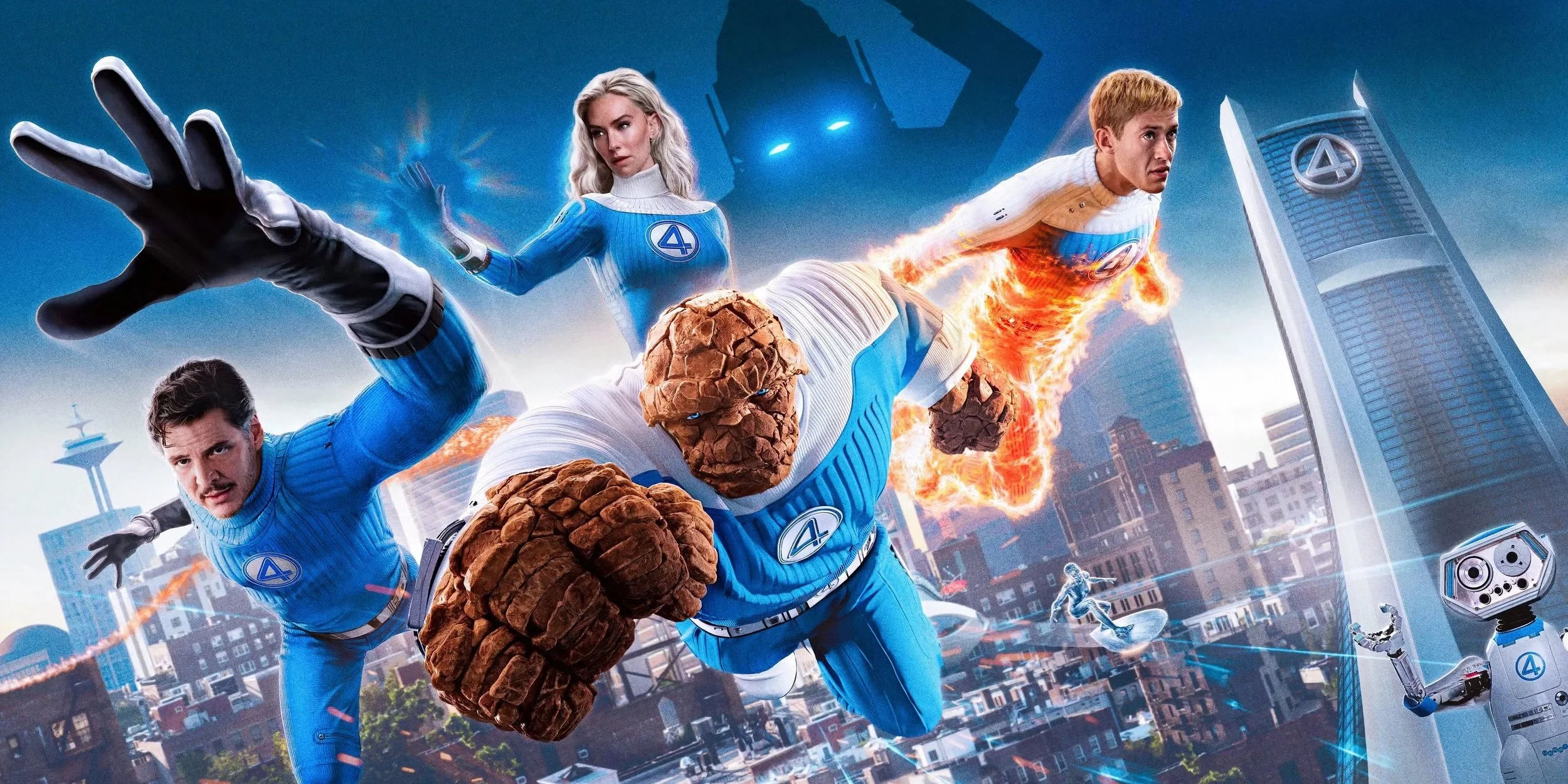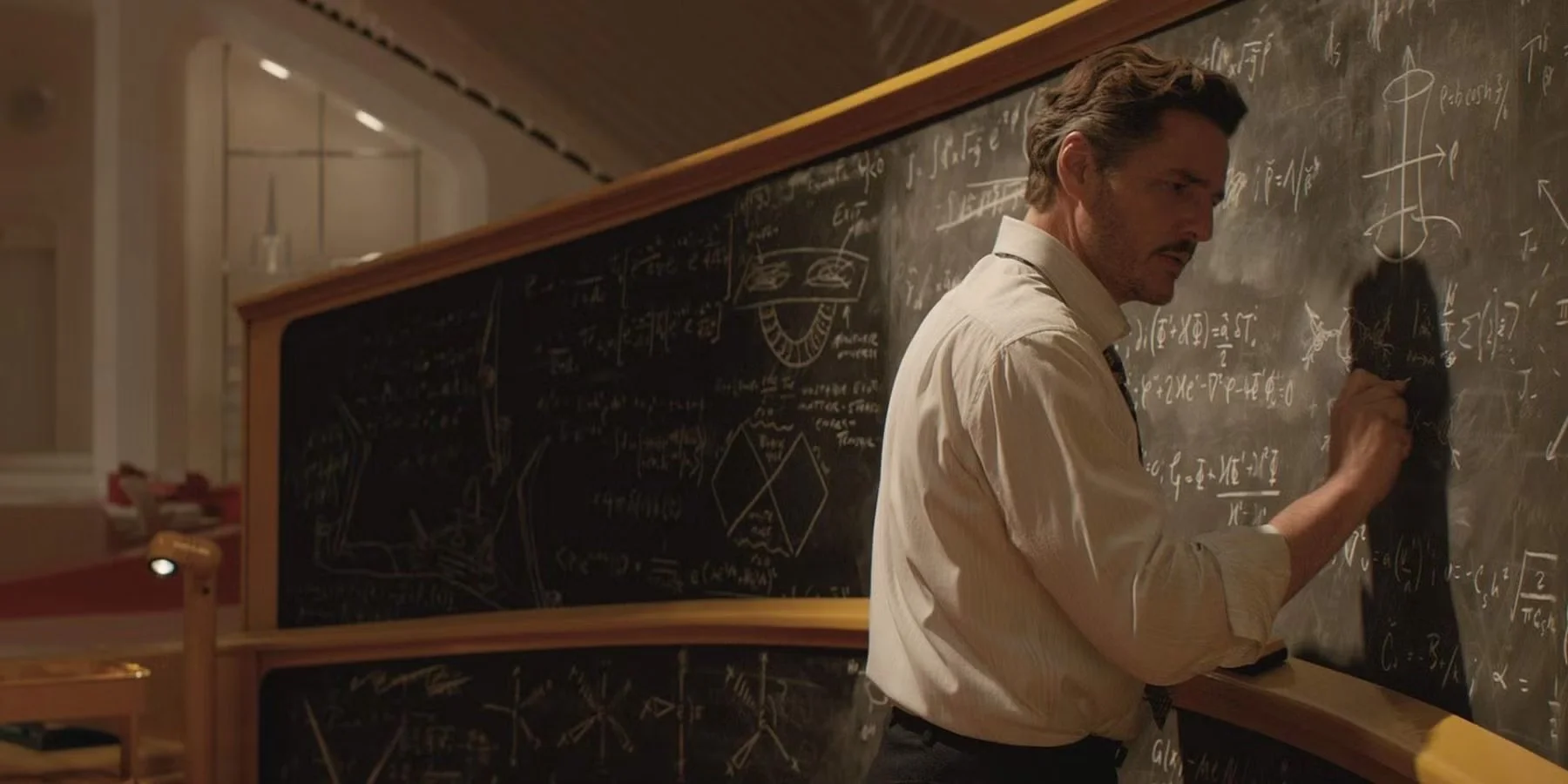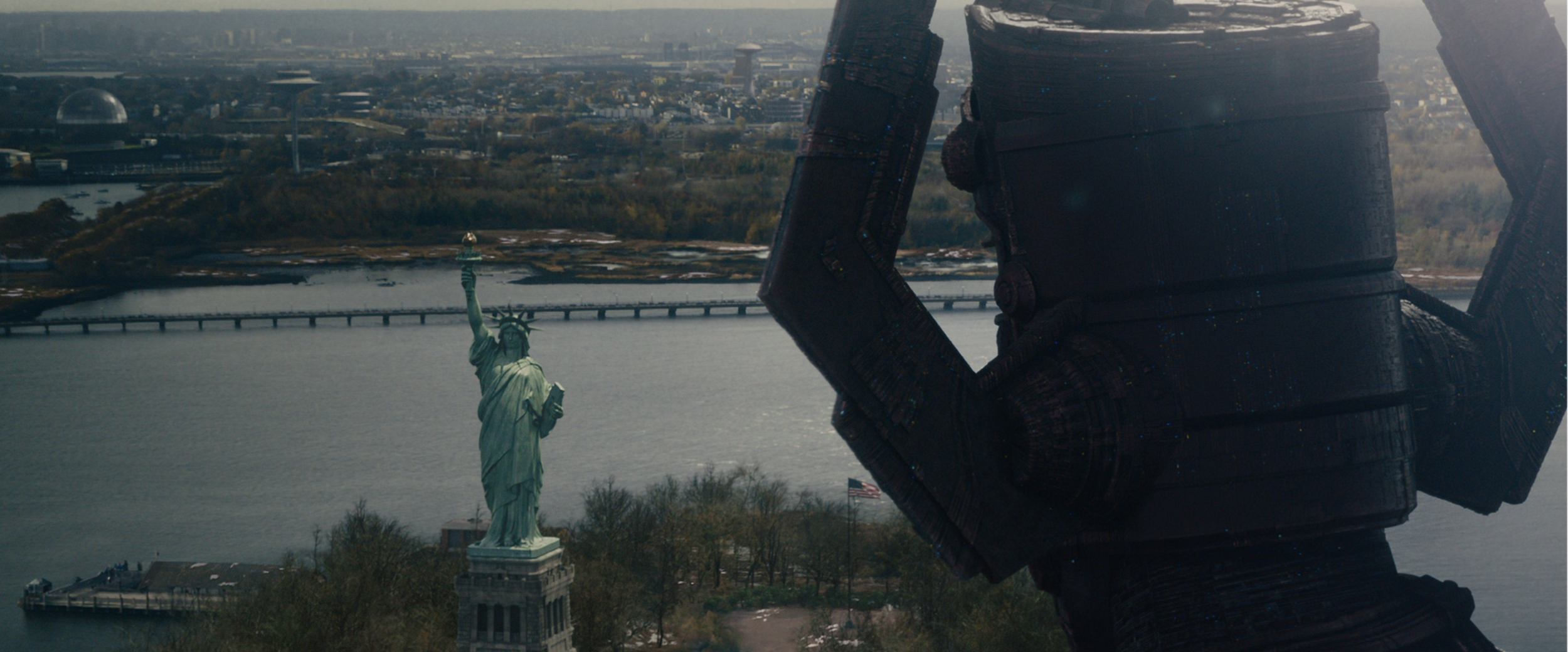'The Fantastic Four: First Steps' Review Marvel's First Family Feature in a Fresh Foundation
Aside from some structural hiccups, The fourth feature attempt at adapting the fantastic four is fittingly the strongest.
Over the last few decades, it became abundantly clear to Marvel diehards and casual audiences in equal measure that it really couldn’t be that challenging to make a good Fantastic Four film. The group, known as Marvel’s First Family, have remained as one of the most prominent groups in the comic giant’s history, have immense potential and commercial appeal on paper. The superhero family dynamic as we know and love it now, most notably in films such as The Incredibles, originates in large part with the Four, who were created by comic legends Stan Lee and Jack Kirby, the latter of whom the film is partially dedicated to. Yet, the famed heroes have famously struggled in the adaptation realm, with every decade since the 1990’s seeing a new attempt at an adaptation. Another 10 years later, smack dab in the middle of the 2020’s, along comes First Steps, the latest, and easily the best Fantastic Four film.
Since the Fantastic Four’s feature film rights landed at Disney in the 20th Century Fox acquisition in the late 2010’s, there was something of an unspoken onus hanging over the project to stand out, not just in terms of potential success financially, but to succeed by the beloved characters first and foremost, and to find a new tone that would support a strong new vision for the heroes. First Steps takes the story and places it in a lightly retro-futurist world, designated as Earth 828, apart from the main continuity of the mainline Marvel Cinematic Universe, likely due to the fact that this narratively explains why such key players in the Marvel mythos have been away, and also to base the film in a 1960’s aesthetic, paying homage to the time of the team’s origin. First Steps also differentiates itself from its predecessors by forgoing the team’s superhero origin story as a primary plot point, instead opting to more or less drop audiences into the action. It is clear that the creative team recognizes that though the film may be the proverbial first steps into a new screen saga for the heroes, they sure are not the audience’s, and avoid them taking these new first steps with any fear of retreading growing pains, much like the approach the MCU’s integration of Spider-Man did, as did James Gunn’s recent Superman film. Instead, for any new audiences, the team’s brief origins are condensed into a very stylized 60’s television program intro, worked into the narrative. These choices seem sound and logical on paper, and do translate well in the final film, helping to start the film off with a more pulpy tone, while still keeping it just grounded enough to buy into it.
First Steps sees audiences following the team four years into their superhero journeys, where they are large public figures, being the only superheroes of their world. The main plot of the film sees the team dealing with the cosmic threats of titanic world-devourer Galactus (Ralph Ineson), whose conquest toward devouring Earth is broadcast to Earth’s citizens by his herald, the Silver Surfer (Julia Garner). This large scale cosmic threat brings about new challenges for each member of the team, all approaching the looming cosmic threat in different ways. Reed Richards / Mr. Fantastic (Pedro Pascal) and his wife Sue Storm / Invisible Woman (Vanessa Kirby) are expecting a child, which has the already neurotic Richards on edge, which is only amplified with the cataclysmic task of saving the world from Galactus. Pascal is able to sell the neuroticism in the brief snippets the film allows, and Kirby continually finds the warmth Sue Storm is known for, serving as the glue between the super family’s eccentric personalities. However, it does feel as if a sense of thorniness is missing, which would have helped to further solidify Reed Richards and his dynamic. Joseph Quinn stars as Johnny Storm / The Human Torch, whose cocky persona is reigned in a bit by Quinn, opting for a more well-meaning, intelligent portrayal, apropos to the more over-the-top, ‘jock’ kinds of takes on the character. Quinn imbues a large amount of heart into Johnny, a much welcomed change to the character that pays off in spades. Rounding out the lead quartet is Emmy winner Ebon Moss-Bachrach as Ben Grimm / The Thing. Likewise to Joseph Quinn, Ebon is able to bring a new sense of heart to his character, but much is left to be desired in terms of his screen-time. While it is nice to have an iteration of the character who is mostly past the identity crisis due to his physical transformation, the film certainly could have benefited from more of his presence, which compliments each member of the ensemble quite well. Ineson’s voice feels tailor-made for Galactus, whose giant presence is amplified tenfold by Ineson’s commanding rasp.
First Steps was helmed by director Matt Shakman, who’d previously had success with Marvel Studios, as the sole director of the acclaimed streaming series WandaVision, the studio’s ‘first steps’ into the television world. Shakman, like with WandaVision is successfully able to create tonal balance between the purposefully retro aesthetics and the general superhero story at play. Shakman excels at displaying the scope and scale of the film’s large scale, opting to shoot certain scenes in the full IMAX aspect ratio, creating some truly striking and impactful iconography, while using the cosmic threats to visually combat the familiar New York skyline in an effective way. Shakman is ultimately a solid hand directorially, managing to sprinkle some genuine flair and intrigue into the much publicized Marvel ‘house-style’ of filmmaking. The film is able to further visually pop thanks to the brilliant production design from Marvel veteran Kasra Farahani (Loki). The environments feel tangible, and not solely bound by their aesthetic, with the Baxter Building as the main highlight. Farahani wonderfully constructs prominent F4 comic elements such as robot H.E.R.B.I.E (voiced by sound design legend Matthew Wood), a practically-constructed figure who gets to shine in the potent domestic scenes, and through a series of great physical-comedy gags littered throughout the film. Farahani also adapts the famed Fantasticar, the group’s flying car vehicle, now resembling a sleek 60’s automobile. Composer Michael Giachinno makes his return to the comic book space, familiar territory for him, and yet he still blazes new ground with the group’s triumphant new theme, and a rather exciting score all around.
While everything feels solid in First Steps, there also feels like a certain level of dissonance present. Much commotion has been made online about the film’s runtime, with different cinema chains featuring differing runtimes on their websites ahead of the film’s release. Potential runtimes ran as long as 130 minutes, and without getting into a conspiratorial vein of thinking, it certainly feels as if a decent chunk of the film was cut out. Acclaimed actor John Malkovich was initially announced as part of the film, and can be seen in the earlier trailers for the film, but is absent from the final film, with director Matt Shakman admitting as much. These cuts prove especially apparent in the film’s opening third, where the narrative momentum does take a little while to get going, with the opening TV show scenes featuring footage that could feasibly have been from later on in the film, now repurposed. Without spoiling too much, a key logistical part of the film’s third act depends on a character that felt very glossed over in the opening act, and while a minor thing, it does remain a prominent and noticeable symptom of the film at large. A further symptom of the film’s structural issues lies in the stakes of the third act. Though there are many prominent team-heavy moments, with some genuine character weightage, the world at large, in terms of intended stakes, feels like less of the sum of its parts. Perhaps this is because the survival of this iteration of the Fantastic Four has been widely publicized ahead of next year’s Avengers film. With all of this, it does feel like certain character moments get lost in translation. While these changes may not have hurt the intent of the lead performances, it does feel as if more of the team chemistry could have bolstered the more exposition-heavy, cosmic portions of the film, as well as the climax.
In any case, First Steps comes a worthy film for the Fantastic Four. To say the bar was not quite high to begin with would feel like a backhanded compliment to a solid film, but a passable Fantastic Four film is still reason enough to celebrate. Shakman and crew deliver a quality film, one with enough new flair and nuance to rise above a lot of the genre’s pitfalls, reliably gliding along with a more light, pulpy tone with a pinch of trepidatious cosmic angst thrown in to the mix. If anything, this film has set up a proper foundation for a continually solid future for these characters, and perhaps the Marvel Cinematic Universe at large.




